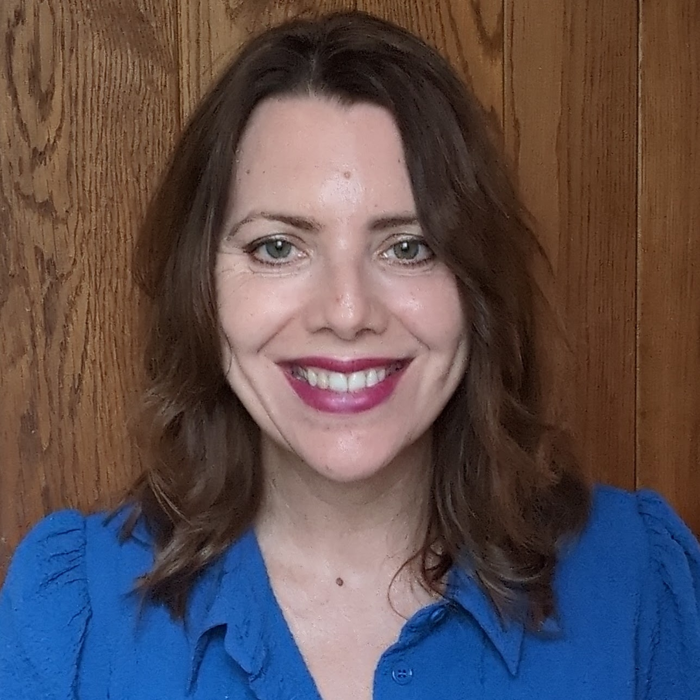Emotion in the Singing Voice
Thursday 4th July 2024, 2:00 PM - 4:00 PM (London Time)
While there has been a significant amount of research conducted into how speakers use emotion in the voice and how listeners hear it, how this relates to singing is a relatively new field. This session will explore what we know about how natural and acted emotion impacts the voice, and how singers might be able to use it to enhance their performance.
Singers are required not only to perform with technical skill, but also to communicate on an emotional level to the audience. Knowledge of how listeners decode emotion can improve how a singer implements emotion in a performance. This session will demonstrate how an academic understanding of this can also inform practical applications for singers and voice teachers.
Singers can become concerned about intense emotional performance overwhelming their technique and either destabilising the vocal performance or putting their vocal health at risk. By understanding more about how the body responds physiologically to different emotions and how listeners perceive the emotion, singers can learn to make choices to allow the listener to experience the emotion without the singer needing to feel it so deeply within their own bodies.
This two-hour session will cover:
- How do we perceive emotion in the voice?
- How much control do we have over our emotional response?
- What is the difference between natural and acted emotion?
- How do listeners perceive genuineness of emotion?
- How can performing intense emotion affect our vocal health?
- What characteristics of emotion do we hear?
- What are the practical applications?
- Workshop – some listening exercises and an opportunity to try out the practical applications in the voice.
Louisa Morgan
Louisa Morgan is a lecturer, voice teacher and researcher, with a special focus on spoken and sung emotion. Louisa lectures with Voice Study Centre (spoken voice lead) and teaches Musical Theatre students on the MA/MFA course at the Guildford School of Acting (GSA).

Attend this course for as little as £22 as part of the Voice Professional Training CPD Award Scheme.
Learn MoreSorry, this is an archived short course...
We have plenty of upcoming short courses coming soon. See details of some of them below or look at the full list of short courses.

Tuesday 13th January 2026
5:00 PM - 6:30 PM
Tuesday 20th January 2026
5:00 PM - 6:30 PM
Tuesday 27th January 2026
5:00 PM - 6:30 PM
Tuesday 3rd February 2026
5:00 PM - 6:30 PM
Tuesday 10th February 2026
5:00 PM - 6:30 PM
(London Time)
Introduction to Postgraduate Academic Skills - Join Live!

Debbie Winter
Are you ready to elevate your academic journey? Hosted by our very own Debbie Winter, join our comprehensive Introduction to Academic Skills course, designed to equip you with essential tools and strategies for success in higher education. Perfect for bridging the gap between undergraduate and postgraduate study, this course offers a pathway to our full MA for students without an existing degree. We offer both live, interactive sessions and standalone, pre-recorded content.

Thursday 15th January 2026
5:00 PM - 7:00 PM
Thursday 22nd January 2026
5:00 PM - 7:00 PM
Thursday 29th January 2026
5:00 PM - 7:00 PM
Thursday 5th February 2026
5:00 PM - 7:00 PM
Thursday 12th February 2026
5:00 PM - 7:00 PM
(London Time)
Trauma-Sensitive Voice Professional Certificate with Dr Elisa Monti

Dr Elisa Monti
Updated for 2026, this five-part certificate course is designed to help participants learn the theory and practice of trauma-sensitive approaches. The concepts and activities included are tailored to meet the needs of voice specialists who want to acquire more specific tools to navigate the space with their students and colleagues.

Monday 9th February 2026
5:00 PM - 7:00 PM
(London Time)
Certificate in Applied Voice Pedagogy with Adam Roberts

Adam Roberts
Spring Immersive - live and interactive learning! This 12-week online programme is designed for voice professionals committed to deepening applied voice pedagogy skills and advancing professional practice. The course offers a rich environment to reflect on your teaching philosophy and develop applied pedagogical techniques. It is ideal for voice teachers, coaches, therapists, and performers seeking to bridge foundational knowledge with practical, student-centered applications.
